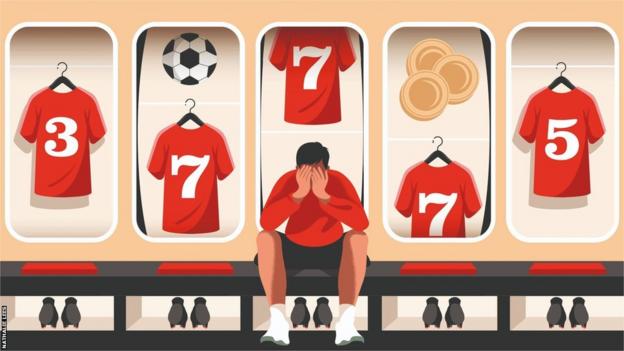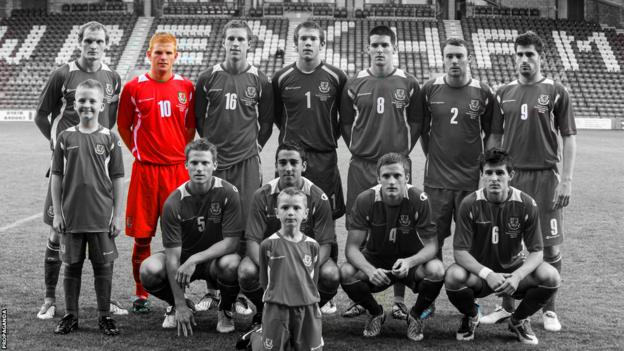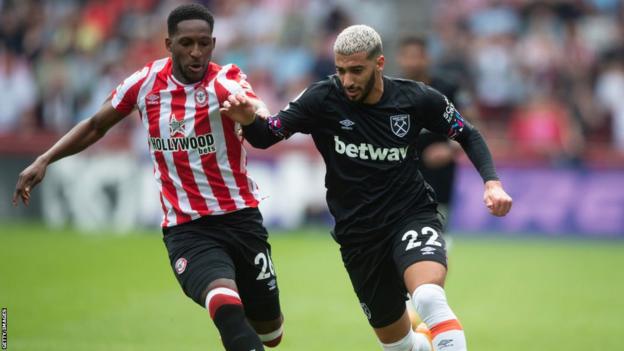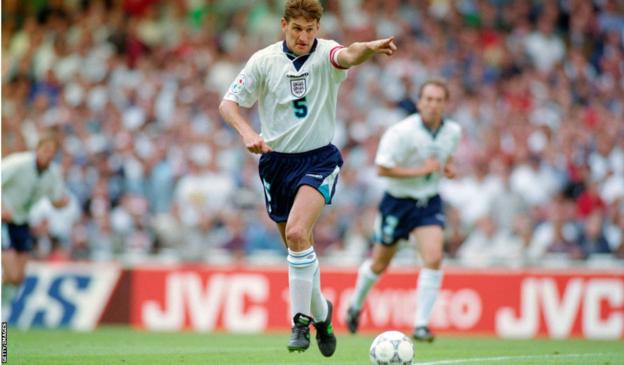

After a decade-long gambling addiction, Marc Williams had lost control.
He had been wading through a swamp of debt for some time and now couldn’t pay off the interest on his credit cards. Still, he attempted to place a £10,000 bet. The screen greeted him with the words “insufficient funds”.
He hurled the iPad he was holding as hard as he could. Then he started throwing anything that wasn’t tied down in his living room. He screamed and cried, cursing the world and his misfortune.
Then, he locked eyes with his 18-month-old daughter sitting on the floor.
“She was just staring at me,” Williams reflects. “I’ll always have that image in my mind, of what I must have looked like to her.
“I calmed myself down and picked her up. I held her close and said out loud that I was going to get help. For the first time in my life, I meant it. I promised that I wouldn’t ruin her future any more.”
That was 7 November 2018 – a date Williams recalls as he tightly shuts his eyes. He hasn’t placed a bet since.
Williams was able to save his relationship with his daughter, but there was little he could do for his football career.
Once a promising youngster at Wrexham who shared a field with future Premier League regulars Hal Robson-Kanu and Joe Allen in the Wales Under-21 team, the sport he had loved all his life was no longer a priority.

“I used to be the first one in at training and the last to leave,” he says. “But soon I was the last in and the first out.
“Managers thought I had an attitude problem. They didn’t know it was much more serious than that.
“I was living a double life. I’d wake up in the morning and put this mask on but it was exhausting keeping a smile on my face that wasn’t really there. I avoided eye contact with my team-mates because I was scared they’d see the real me.
“I remember playing in an FA Cup game. My mum and dad were in the crowd. It should have been a dream but all I could think about was this large amount of money I’d put on a cricket match. I couldn’t wait for the final whistle so I could go and check the score.
“I didn’t want to be a footballer any more. I just wanted to be in my comfort zone, where I was away from everyone and I could gamble.
“That’s when I felt like I was enough. That was the only time I felt like I was enough.”
Often called a hidden addiction, problem gambling does not leave its mark on the body like other compulsion disorders, such as alcohol or drug abuse. That is why it can be harder to detect – and easier to conceal.
This year, a study in the Scientific Reports journal showed about twice the level of problem gambling among top-level sportspeople in Ireland’s Gaelic Athletic Association compared with their demographic in the general population. It followed a 2016 Europe-wide study that showed a significantly increased level of gambling problems among professional athletes.
In 2014, a survey revealed gambling problems running three times higher among professional male footballers and cricketers, compared with young men in the general population.
A potent combination of more leisure time, more disposable income and a strong desire to win at all costs can create an ideal environment for addictive behaviours to germinate and grow.
“Some players we interviewed believe that an elite athlete’s personality type lends itself to gambling issues,” explains Kieran Murray – a lead author on the 2023 paper.
“They’re competitive by nature. Gambling with team-mates increases their risk. It’s a group activity and it’s easy to see why they’d want to win. If there is a gambling culture within the team, that can be detrimental.”
Williams agrees with Murray’s assessment.
“When a team-mate would win big and I’d lose, that would make me want to gamble even more,” he says. “I was always a sore loser. I know a lot of my team-mates felt the same way.”
Murray’s study – titled ‘Predictors of adverse gambling behaviours amongst elite athletes’ – was concentrated on amateur athletes.
Players are not paid to play in the GAA, and usually balance their time on the field with either a job or higher education. What’s more, they compete in a league in which sponsorship by a betting company is prohibited.
It is a different story in English football. Even outside the Premier League, where the average salary came in at more than £60,000 a week in a 2019 survey, players are still well compensated. They are fully professional, so enjoy a lifestyle with plenty of downtime between intense periods of work.

What’s more, footballers in this country are bombarded with the logos and slogans of betting companies.
“They’re everywhere,” says James Grimes – founder of the Big Step, a campaign launched in 2019 to eradicate gambling advertising from football at all levels.
“They’re on the high street. They’re on the telly. They’re on the radio. The Football League is sponsored by Sky Bet. Major stadiums and teams are sponsored by them.”
Eight Premier League teams display gambling firms on the front of their shirts this season, while two more wear betting-related adverts on their sleeves.
Brentford, who have South African gambling company Hollywoodbets as their most prominent sponsor, are spearheaded on the field by Ivan Toney. Last week, the England striker was given an eight-month ban after admitting breaching betting rules 232 times.
While there is no suggestion Toney, whose offences took place over a near four-year period, has a problematic relationship with gambling, the contrast between his suspension and his team’s sponsor has drawn attention.
“It’s rank hypocrisy,” says Grimes. “These young men are forced to become walking billboards for online casinos and then lose their jobs if they use that product. It’s nonsense.
“In a perverse way this could be our tipping point. Brentford manager Thomas Frank said that something needed to change.
“I think that was the first time a Premier League manager has said what we’ve been saying for years. Maybe this might prove to be a catalyst for something actually being done.”
Change has come. Rather, change will come in 2026 when gambling companies will no longer be allowed on the front of top-flight teams’ shirts after a ground-breaking agreement between clubs.
Grimes called the move “incoherent”, pointing out gambling companies will still be able to occupy the players’ sleeves, pitchside hoardings, stadium floodlight pylons and the airwaves between the action.
But the shirt-front ban is an acknowledgment of the adverse effects of the sport’s close relationship with a product that has the potential to cause harm.
Parallels have been drawn with tobacco adverts, which were outlawed in the UK in 2003.
A study carried out three years later found the ban had “significantly reduced exposure to pro-tobacco marketing influences”.
Would a ban on gambling sponsorship act as a silver bullet? Grimes isn’t so sure.
“It would certainly help prevent harm,” he says, “but it wouldn’t work by itself. That is why we also advocate to make the product safer, and to have independent money for research and treatment.”
Grimes speaks with a zealous fervour. He says he is compelled by a “mission” and is “angry” at football and an industry that let him down.
When he was 16, he placed a £5 accumulator on four teams and took home £90 when they all won. He can still remember the clubs – Histon, Stevenage, Peterborough and Torquay.
“I thought I had football figured out,” he says.
“It was around this time I took an interest in coaching. I was Uefa qualified by the time I was 17. I worked in academies at Sheffield United and Doncaster Rovers. Football was my life. I trusted it with my heart and soul.”
His bets grew larger. So did the money he owed to friends and family members, as well as to “dodgy companies that no longer exist”. In total he lost about £100,000.
He struggled to hold down a job. Once, with nowhere else to go, he spent several nights sleeping in a train station.
“I’m lucky I didn’t take my life because I so easily could have,” he says. “I was on the brink of doing something really terrible. I don’t think people realise that this is an addiction that can kill people.
“I’ve spoken to parents who lost kids to gambling-related suicide. They’ve read the suicide notes and gambling is often cited as the primary factor. When we view this as a risk to life then we’ll have better safety measures, but we’re a long way away from that.”
Grimes believes education lies at the heart of a solution. So does Williams, who is now contracted with Epic Risk Management – a private consulting firm that uses the lived experience of athletes with gambling problems to inform others. Leading Premier League clubs, including Manchester City, Arsenal, and Chelsea, are clients.
“I’ll speak to a room of footballers and they’ll relate to the stories I share,” Williams explains. “It can get emotional sometimes.
“I’m in rooms with household names and you can hear a pin drop. They’ll recognise the characters and the emotions and the pressures I speak about. Even if they’re playing at a higher level than I reached, the themes are the same. I now feel like I’m enough.”

Unlike Big Step, Epic is not advocating for football’s divorce from gambling. The company is partnered with seven gambling firms and takes money from the industry.
“We’re not looking to make gambling illegal in this country,” says John Millington – a senior director at Epic. “Placing a bet on sport can be a healthy and enjoyable pastime for a lot of people.
“We’re trying to equip people, especially athletes who are particularly vulnerable, in order to prevent problems down the road. We know that we’re making a difference. Through the stories of the athletes who now work with us we’re aiming to remove the stigma around harmful gambling behaviours.”
This resonates with Williams, who says he felt ashamed by his addiction and could not contemplate coming clean to a manager or team-mate.
Murray’s research found players with a problem were more likely to speak to family members, which is why it is imperative to open safe spaces for those who want to find help.
More sportspeople are speaking out publicly as well.
For a 2021 documentary, former Arsenal player Paul Merson brought together three fellow ex-footballers recovering from gambling addiction – Keith Gillespie (Newcastle and Northern Ireland), John Hartson (Arsenal and Wales) and Scott Davies (Reading) – to discuss their lives and losses.
Between them, the four men have believe they have lost £15m to gambling.
Tony Adams, Merson and Hartson’s former Arsenal captain, founded the Sporting Chance clinic in 2000. It provides support and treatment for current and former athletes to overcome a range of addictive disorders. Adams told the Times in 2022 that Sporting Chance sees more athletes with addictions to gambling than alcohol, describing gambling as “the drug of choice for the Premier League footballer”.
While perceptions around addiction are shifting, some mental blocks remain.
“There is an issue with athletes seeking help, generally, compared to the general population,” explains Alex Mills, head of education and communication at Sporting Chance, which had more than 1,000 people in its care last year.
“There’s a macho aspect to it. There’s an ego that’s needed to thrive in that world but that can often equate challenges with weakness.”

Everyone interviewed for this piece agreed on one important aspect – that gambling addiction is a mental health problem that should also be seen as a cost to society. A white paper published on 27 April has at least brought the conversation to those with power to make a difference.
In the biggest shake-up of regulation in the gambling sector for nearly 20 years, various measures have been suggested. Limits on slot machines for 18 to 24-year-olds – “a particularly vulnerable cohort”, according to the paper – have been proposed.
Other regulations would also mean gamblers losing large amounts of money could face checks. They would kick in when a gambler loses £1,000 in 24 hours, or £2,000 over 90 days.
The measures are aimed at those already in the grip of addiction. But some argue the impressionable fan or wealthy young player with money to burn and time are still vulnerable.
“The later you introduce a product to someone, the less chance they have of becoming addicted,” Grimes says.
“Kids as young as nine or 10 are exposed to this. Unless we kick gambling out of our sport for good, we’ll be dealing with this problem for generations to come.”
Title graphic: Nathalie Lees
If you have been affected by any of the issues in this article you can visit the BBC’s Action Line for information and support.